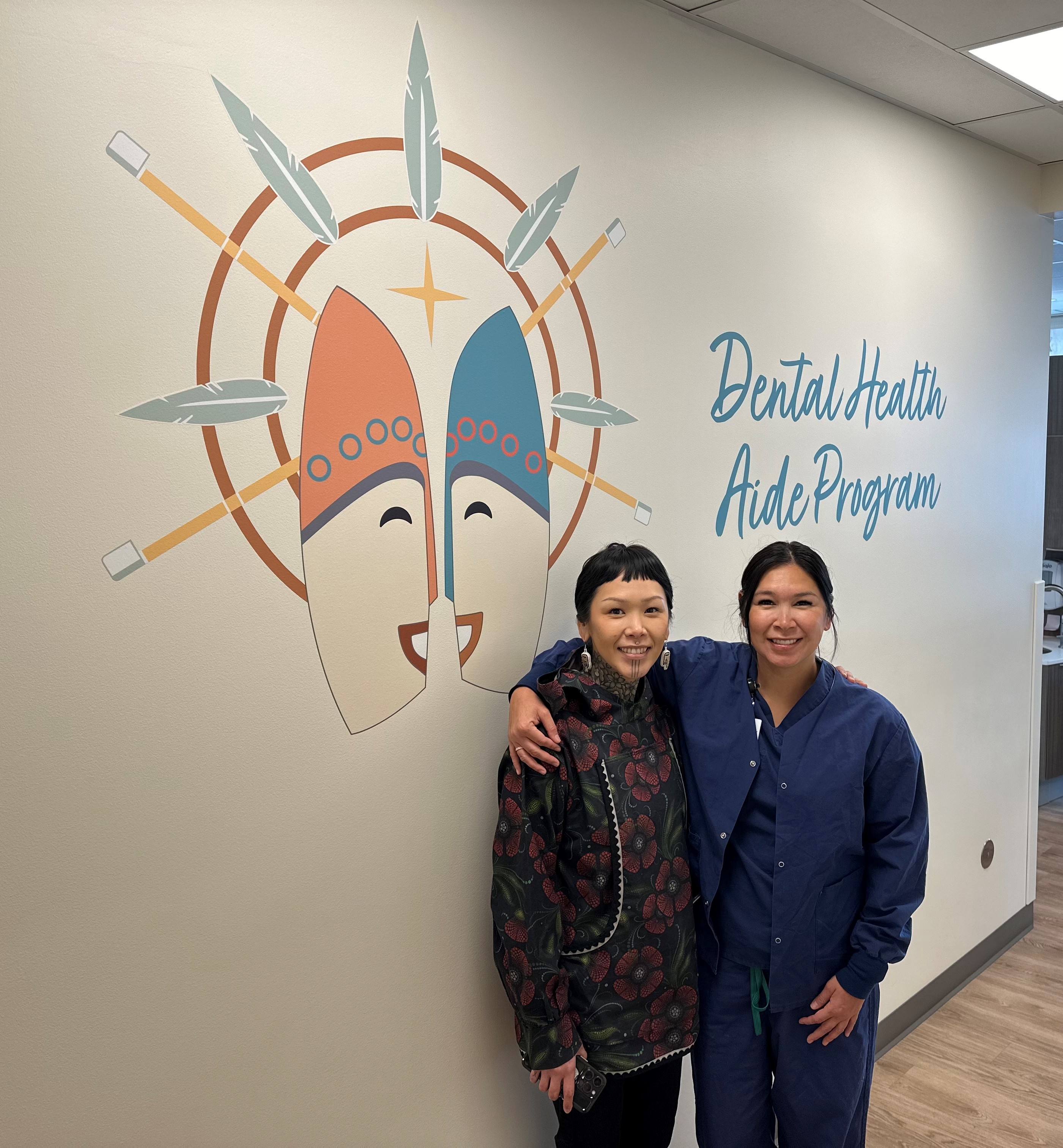 Meet Leandra Beech and Mek Apangalook, two sisters from Alaska who share a passion for dental therapy. Born and raised in the northern reaches of Alaska, in Gambell, St. Lawrence, the sisters developed an appreciation for dental care from an early age. Leandra, the oldest of three, started her career in dental care as a dental assistant in 2008. After gaining eight years of experience, she became a sponsor for the Dental Health Aide Therapist (DHAT) program. On the other hand, Mek initially attended the Southcentral Foundation Training Program for a different field before discovering her passion for dental therapy. She started her journey as a dental assistant with SCF for 11 years before seizing the opportunity to become a dental therapist.
Meet Leandra Beech and Mek Apangalook, two sisters from Alaska who share a passion for dental therapy. Born and raised in the northern reaches of Alaska, in Gambell, St. Lawrence, the sisters developed an appreciation for dental care from an early age. Leandra, the oldest of three, started her career in dental care as a dental assistant in 2008. After gaining eight years of experience, she became a sponsor for the Dental Health Aide Therapist (DHAT) program. On the other hand, Mek initially attended the Southcentral Foundation Training Program for a different field before discovering her passion for dental therapy. She started her journey as a dental assistant with SCF for 11 years before seizing the opportunity to become a dental therapist.
The sisters decided to pursue dental therapy to address their community's lack of access to dental care. Witnessing cases like children with dental cavities and limited access in Gambell and Anchorage, Alaska fueled their commitment to making a difference in oral health care.
Having graduated in 2018, Leandra now serves as an instructor at the Ilisagvik Dental Therapy Program in Alaska. Meanwhile, Mek is a full-time student in her first year in the Dental Therapy Program. Their unique dynamic as instructor and student adds an exciting dimension to their relationship as they navigate their educational journey together.
Despite the challenges faced in their careers, such as sacrificing time and adjusting to rural communities, both Leandra and Mek find the work incredibly rewarding. Providing care to youth and elders in actual clinics, especially those who may not have had access before, brings a sense of fulfillment. The sisters also emphasize the importance of representation, highlighting how seeing providers who look like their patients enhances effective communication and comfort. Leandra states that many youth and elders are comfortable and grateful to see more providers that look like them. Moreover, Leandra emphasizes the importance of communicating with your patients and connecting with them to provide more personalized care.
Leandra shared her experience in the pediatric intensive care unit, where she recognized the familiar last name of someone from her hometown. The patient was non ambulatory, could not talk, had no use of arms and legs, but was able to understand speech. She walked in and was able to speak in Yupik, brushed the patient's teeth, and showed care. She conversed with the patient's mother, bridging any language barriers. When the nurse came in, she could not brush her teeth due to language barriers. As Leandra left the room, she held back tears; her profound understanding heightened by the realization that long-term care in a village setting comes with unique health challenges and necessitates a distinctive approach to caregiving.
By working together the sisters have shared moments of support and understanding, especially in education. While they don't study together, they offer advice and feedback in the simulation lab, creating a sense of empathy and shared experience. As dental therapists, they approach patient care with a non-judgmental attitude, taking the time to build trust; for students like Mek, simulations and ergonomics pose initial challenges. However, with practice and experience, they become more comfortable as they are taught everything they need to know and are prepared to care for patients.
Their advice for those considering a career in dental therapy is rooted in passion and sacrifice. The sisters encourage individuals to pursue dental therapy if they genuinely want to change communities. Sacrifices are inevitable, but the reward lies in impacting people's lives and health. The crucial skills for success in this profession, they note, include compassion, a deep understanding of the purpose behind the job, critical thinking, flexibility, and confidence in decision-making. Moreover, having good hand skills, such as a background in crocheting and pottery, is a plus in the dental field. Coming from an indigenous background, many of their practices are community-based, and they know they have a support system they can rely on.
Balancing work and personal lives, the sisters find that their shared experiences help maintain boundaries and professionalism. While both are still growing in their respective roles, Leandra contemplates further education to enhance her teaching abilities. At the same time, Mek looks forward to graduation and combining dental therapy with behavioral health.
Leandra's transition from a practicing dental therapist to an instructor was smooth, thanks to her hands-on experience. Her advice for others considering a career in academia is to understand the student's perspective and be able to help motivate them. Leandra emphasizes hope for more dental therapists to become educators for visibility and access to care. Her experience as a dental therapist helps her understand and acknowledge the students' struggles; she feels that she can empathize and relate to the students as an instructor.
In the future, Leandra and Mek see themselves continuing to positively impact their communities, whether through education, clinical practice, or a combination of both. Their journey exemplifies the transformative power of dental therapy and the profound influence it can have on individuals and communities alike.

